Concerns about an energy shock
On June 22, US President Donald Trump unexpectedly announced that he was open to the possibility of regime change in Iran after airstrikes on Tehran’s nuclear facilities. The statement is said to go against the previous stance of US officials, who emphasized that the military campaign is not aimed at overthrowing the Iranian regime.
In response, the Iranian parliament passed a resolution authorizing the closure of the Strait of Hormuz “when necessary” as a measure to protect sovereignty against US military action. This resolution received almost absolute support from lawmakers.
However, the final decision still rests with Iran's Supreme National Security Council, led by Supreme Leader Ali Khamenei.
The Strait of Hormuz, which connects the Persian Gulf to the Indian Ocean, is a vital route for the global energy industry. According to Euro News , about 20% of the world's oil (equivalent to 20 million barrels/day) and 30% of global liquefied natural gas (LNG) is transported through the Strait of Hormuz.
Major oil exporters such as Saudi Arabia, the UAE, Kuwait, Qatar and Iran itself rely on Hormuz to get their oil to the international market. Measuring just 33km wide at its narrowest point, the strait is considered the “throat” of the energy trade, where any disruption could have serious consequences.
US Secretary of State Marco Rubio has urged China to persuade Iran not to block Hormuz, highlighting Beijing’s dependence on the route for its oil imports. Mr Rubio warned that closing the strait would be “economic suicide” for Iran and would severely damage global economies, especially oil-dependent countries such as China, India and South Korea.
On the morning of June 23, Brent crude oil prices increased by 2.7% to over 79 USD/barrel. WTI crude oil prices increased by nearly 2.8% to nearly 75.9 USD/barrel. The market is worried about an energy shock if Iran carries out its threat.
The Strait of Hormuz is a vital route for the global energy industry. Source: NX
Global economic consequences
If Iran were to close the Strait of Hormuz, it would send shockwaves through the global economy. Analysts say oil prices could jump from the current $75-80 a barrel to as high as $120 in a matter of weeks. This would fuel inflation, weaken consumer purchasing power and slow global economic growth.
For the Middle East, major oil exporting countries will suffer heavy losses when Hormuz is closed, as the value of oil exports accounts for a significant proportion of budget revenue.
For Iran, the blockade of Hormuz could be a “double-edged sword”. Although this is a strong deterrent to the US and the West, Iran will also cut off its revenue from oil exports, which account for about 10-15% of its GDP.
Although the US has significantly reduced its dependence on imported oil thanks to shale oil production, soaring oil prices still have a negative impact on the world's largest economy. Energy inflation will push up the prices of fuel, goods and services, affecting the cost of living and industrial production. Moreover, the US may face political and economic pressure from allies dependent on Middle Eastern oil, such as Japan and South Korea.
As the world’s largest oil importer, more than 40% of China’s oil imports pass through the Strait of Hormuz. A blockade would disrupt energy supply chains, push up oil and gas prices, and put pressure on manufacturing and transportation industries. Rising inflation could slow China’s economic growth, which is already facing many internal challenges.
Economies such as Japan, South Korea and India, which depend on Middle Eastern oil, will face serious energy shortages. Likewise for Europe, the Strait of Hormuz is not only a source of oil but also a vital trade route.
For the global economy, disruptions in Hormuz would cripple energy supply chains, push up prices for goods and services, and increase global inflation. Central banks may be forced to raise interest rates to curb inflation, but this would slow economic growth, pushing many countries into recession. Financial markets would also be subject to sharp volatility as investors worry about geopolitical instability.
Is Iran Really Closing the Strait of Hormuz?
Although the Iranian parliament has passed a resolution authorizing the closure of the Strait of Hormuz, the final decision still rests with the Supreme National Security Council and Supreme Leader Ali Khamenei.
Iran has threatened to block Hormuz in response to sanctions or international pressure many times in its history, but has never followed through. This time, the situation seems more serious due to the US and Israeli airstrikes on Iran's nuclear facilities, along with tough statements from President Trump.
However, closing Hormuz would be a risky gamble for Iran. Blocking the strait would not only cause economic damage to Iran itself but could also spark a large-scale military conflict with the US and its allies.
The US has warned that any action to impede freedom of navigation in Hormuz would be viewed as a “serious act of aggression”. Moreover, the dependence of countries such as China and India on the strait could create diplomatic pressure on Iran to restrain itself.
On the other hand, the current tensions between the US, Israel and Iran have reached an unprecedented high, with direct attacks on Tehran’s nuclear infrastructure. This could push Iran into a corner, prompting it to use the Hormuz card as a drastic response.
However, the possibility of Iran completely closing the strait is still considered by many organizations to be low, because the potential economic and military consequences are too great. Instead, Iran may choose softer “jamming” measures, such as increased ship inspections or military exercises in the area, to send a message without provoking a full-blown conflict.
Trump's surprise move: Gold and oil prices may skyrocket, causing global turmoilThe US airstrike on three Iranian nuclear facilities on June 21 has pushed Middle East tensions to an alarming level, which could have a strong impact on global financial markets. Gold and oil prices are at risk of skyrocketing.
Source: https://vietnamnet.vn/se-ra-sao-neu-iran-dong-cua-eo-bien-hormuz-2414018.html


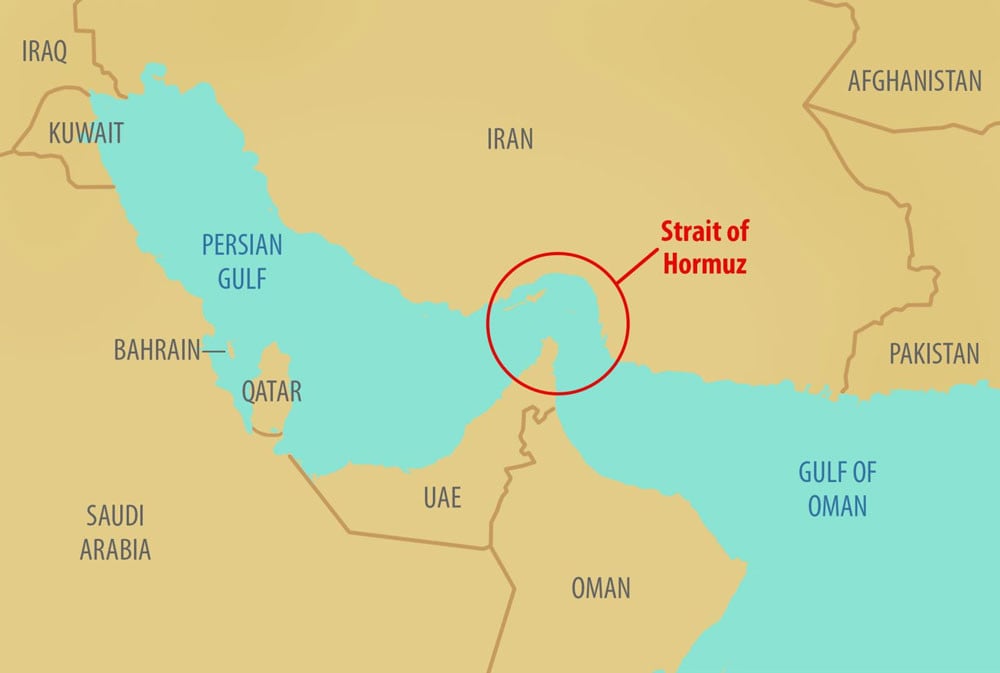
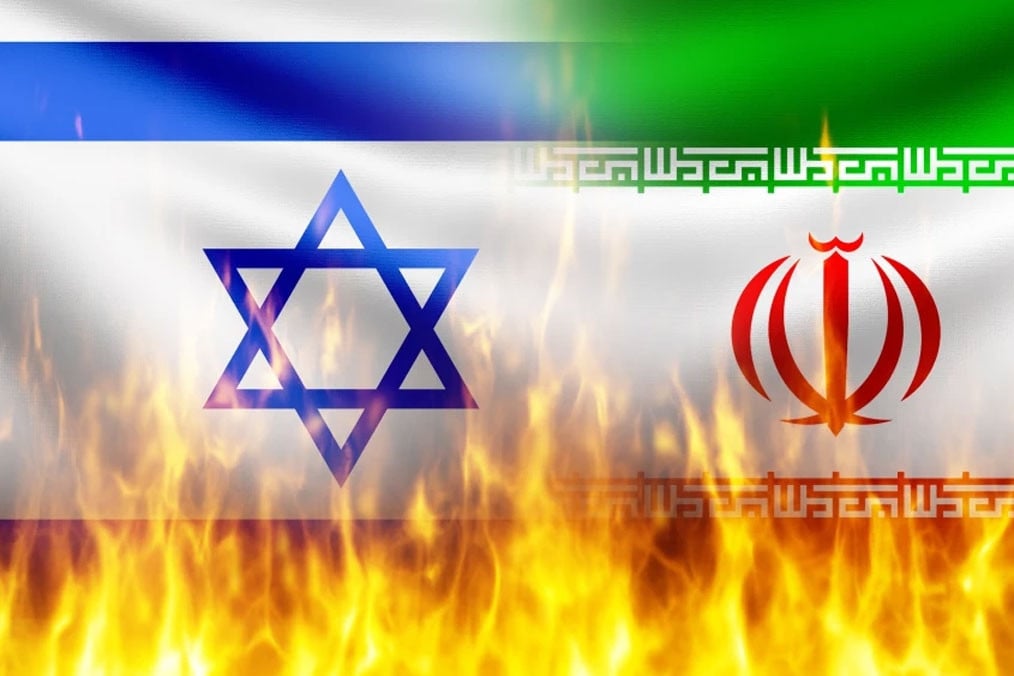


![[Photo] General Secretary To Lam and National Assembly Chairman Tran Thanh Man attend the 80th Anniversary of the Traditional Day of the Vietnamese Inspection Sector](https://vphoto.vietnam.vn/thumb/1200x675/vietnam/resource/IMAGE/2025/11/17/1763356362984_a2-bnd-7940-3561-jpg.webp)








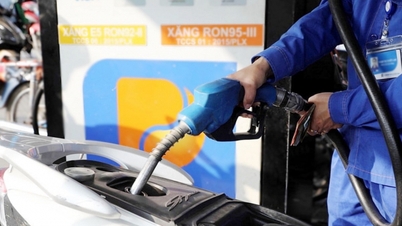

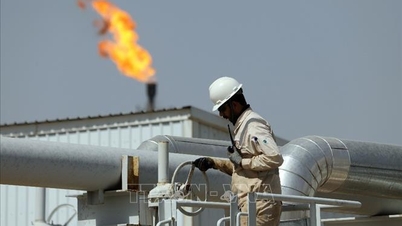

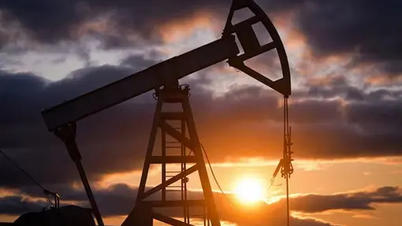
















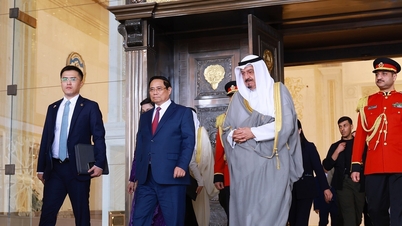












































































Comment (0)